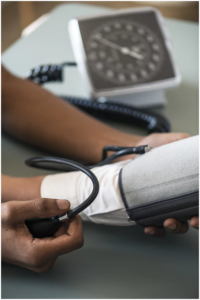10 Things You Learn as a Nurse (That They Don’t Teach You in School)


Photo from Unsplash
Nursing school builds the foundation of what the profession is like in practice, however, there are essential things that you’ll never learn from a book or in a classroom.
Your first year in nursing school has probably taught you that what you see in movies and in the telly doesn’t even come close to the realities of health care. Not everyone has the time to put on makeup, fix their hair, or look as well-rested as actors do.
It takes a lot of grit and determination to become a nurse. There are a lot of myths and the job is often undermined by most but, be warned: actually, nursing jobs are not all bandage-wrapping and doing scut work as per the doctor’s orders.
If you’re about to get your license, or just about to apply for nursing school, here are a few things you won’t learn inside the classroom:
You will be expected to know everything.
You are the person that the patient (and his / her entourage) sees and interacts with the most. It can often lead to them treating you as a one-stop help desk, with questions ranging from medical to irrelevant.
People expect nurses to know all the answers and have all the solutions. On one hand, you have to understand that their endless questions are brought about by concern. But on the other hand, their expectations can be unrealistic.
This is where your people-handling skills come in to play. You have to know how to quell their worries without giving a diagnosis that the doctor did not green light. Just treat them as to how you would want to be treated if you were the patient on the bed.
Good reports are essential.

Photo from Unsplash
As nursing is a profession that requires shifting, round-the-clock schedules, properly endorsing the patient to the incoming nurse is vital.
We know that nursing schools train you on how to give and take a report. Unfortunately, they’ve only scratched the surface on this important part of the job. You need on-ground practice to see what a good endorsement contains, and what a poorly constructed one is.
Gaining more experience will help you filter which important points should be in your report. Just take into account what you would like to read in a report if you were the incoming nurse and let that guide you.
Time management skills will save you.
Nursing school primarily gives you knowledge that are of the ideal workplace. In reality, it can be easy to lose your grip as the tasks come flooding in all at once. You might find yourself scrambling around and wasting more time panicking.
Being a registered nurse, you’ll realise that your workload isn’t always compliant with the recommended standards of the practice. A good example of this is when the recommended nurse-patient ratio isn’t adhered to. In worse cases, you’ll be forced to work beyond your 12-hour shift because of insufficient staff.
This is when your time management skills are honed. While you may have learned to multitask in school, time management is a skill that you will continually hone while on duty.
You have to take care of yourself in order to take care of other people.

Photo from Unsplash
This should go without saying but people in the field of healthcare tend to forget their own needs. Nurses get so caught up in their duties that they forget to even take breaks sometimes. Mundane tasks like eating or peeing seem to be swept under the rug when the call of duty comes.
Stealth is the name of the game as this is a skill that nurses develop on the job. You’ll learn how to eat within two to five minutes, and sneak in a drink of water while running your nursing tasks at the same time.
Some professionals neglect their own needs and, sadly, result in burnout. Would you rather take 10 minutes off to yourself, or have to take a week off because your body gave up on you?
A good support system outside of the hospital will keep you sane.
Don’t let your life revolve around your job. There are some nurses who eat, live and breathe in the hospital that they tend to forget their loved ones outside of it.
This is something you should avoid because, no matter how in love you may be with being a nurse, you’ll need a break from it, too. Make an effort to at least see your friends or family once every two weeks.
Seeing people outside of the medical field will give you a breather and help you enjoy. Bonding with your friends and family on your days off will not keep you sane on work days, but they’ll appreciate you making time for them as well.
People will die, and it’s not your fault.
Mortality is a basic human trait and you’ve probably grappled with this while you were still in nursing school. Patients die on a regular day at work.
However, when you’ve gotten to know a patient and their family, it is inevitable to be affected. You’ll feel like there’s something you could’ve done to help or, worse, you’ll feel guilty.
But don’t let that get to you. Unless there was some extenuating circumstance, it wasn’t your fault.
No one in nursing school teaches you how to feel or how to act when you lose your first patient. Deal with it as you see fit.
Nursing is running a never-ending marathon of problem-solving.
Nurses are critical thinkers. In a perfect world, time and supplies will always be enough but reality is far-fetched from that.
Critical thinking is integrating information from the patient, outcomes, pieces of evidence, and past experiences. By mixing all of these together, you’ll be able to think on your feet and give immediate care to your patient.
One way to stay on top of your game is by consulting with your supervisors and keep up-to-date with medical journals. There may be tips and tricks that you can use to speed up your to-do list.
Dealing with rude doctors is part of the job.
Don’t get us wrong; Not all doctors are rude, and they all have different personalities. Some will be thankful and cooperative while some will just downright test your patience.
Rude, demanding doctors may make you just want to throw your hands up and give up, but don’t take it personally. Rise above the situation and be professional.
You should learn to develop a strategy when it comes to uncooperative doctors. This is a skill that you’ll learn only after having dealt with a handful of rude doctors, sorry to say.
You’ll be able to touch people’s lives.
Nursing is a rewarding profession. You’re there from the beginning to the end of life. You get to see the miracle of life every day. From small acts like comforting a worried patient to help them with their pains, you’ll have a positive impact in their lives.
You’ll be able to experience the tear-inducing moment when you see your patient fully recovered. Even a short, genuine “thank you” after someone gets discharged will make you feel like all of the work was well worth it.
Nursing schools will teach you facts, theories, and procedures but the experience is still the best teacher.
So, while you’re still in nursing school, absorb all that your textbooks and professors can offer you. Try to listen to their insights and stories about their experiences.
Once you’re out in the real world of nursing, you’ll realise that it was nothing like they say in school. And that’s the most exciting part of the profession.
- Unlocking the Secrets: How to Become a Successful YouTuber - March 17, 2024
- Unlocking the Power of Home Loan Calculators: A Comprehensive Guide - March 9, 2024
- Understanding Dementia: A Comprehensive Guide - March 7, 2024






